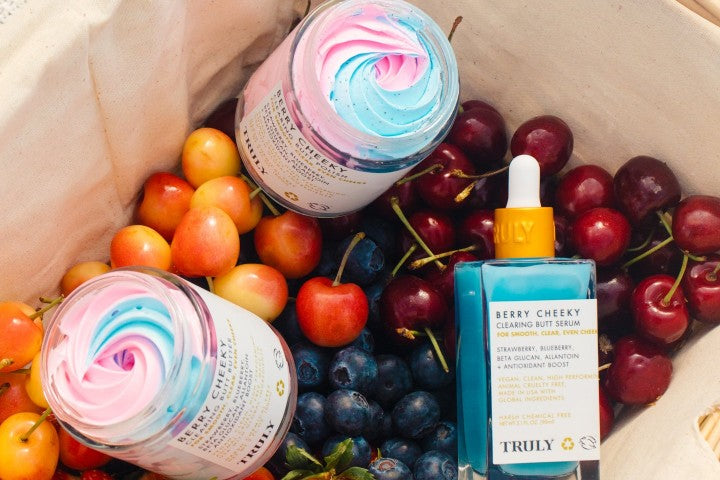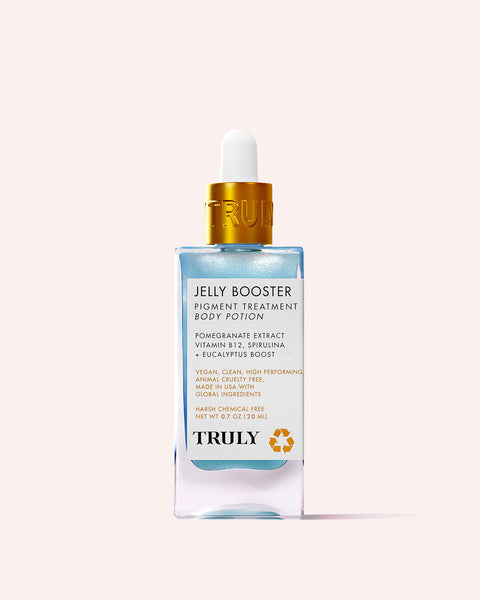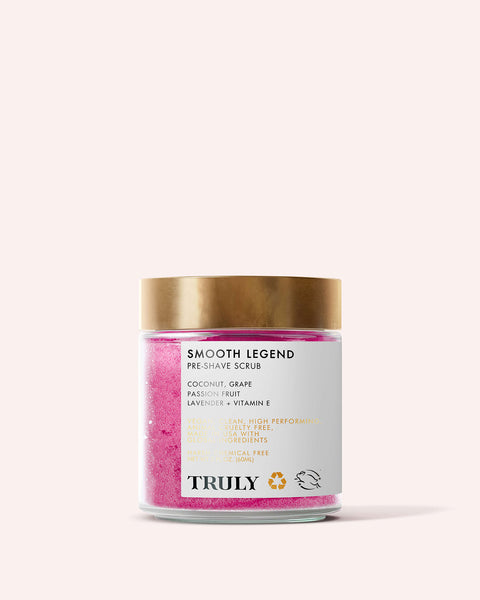How Beta Glucan Can LVL up your Skincare

In the skincare world, we're always eager to allocate new, effective ingredients that promise transformative results. It turns out, beta glucan could be one of those ingredients.
Deemed, "better than hyaluronic acid," we're just curious...why don't we hear about this superstar skincare ingredient more?
To give you a better idea of how beta glucan works and its benefits, we've done some digging to explore the full scope of this ingredient. Then you can decide for yourself whether or not it's worth the investment. But seriously, this is an ingredient you need to hear about. Here's why.
WHAT IS BETA GLUCAN?
Beta glucans are long-chain sugar molecules, also known as polysaccharides, found in the cell walls of bacteria, yeasts, algae, fungi, lichens, and grains. Some good examples of where you'll find them: oats and barley. You can ingest beta glucans in foods or you can use them topically - in the form of an extract.
Powerful humectants and soothers, beta glucan can strengthen the skin’s moisture barrier and steer out bacteria for smooth, healthy, beautiful skin.
"Beta glucan is a humectant moisturizer that attracts water to the top layers of skin," says Dr. Michelle Wong, Science Educator and Content Creator behind LabMuffin.
It's also great at boosting skin barrier function, reducing irritation, redness, and inflammation. Some even say beta glucan is the secret to youthful skin. Yep, the benefits of it go on and on.
In addition to its topical benefits, beta glucan offers a number of health benefits when consumed, including lowering cholesterol, improving glucose levels, and boosting the immune system. Seriously, what's not to love about this ingredient?
Plus, it is considered a safe product with minimal side effects, and is suitable for all skin types. Yep, we're officially in love...
HOW BETA GLUCAN FIRMS AND BRIGHTENS SKIN
Beta glucans are high in antioxidants, which makes them highly effective in protecting the skin against oxidative stress that can prematurely age you. Think fine lines, wrinkles, and sagging skin!
By neutralizing free radicals and preventing cellular damage, applying beta glucan topically is an excellent anti-aging treatment.
"Some studies indicate B-glucan may also help with elastin production, which would given it some benefit in anti-aging, as collagen and elastin are broken down as we age," says Dr. Caren Campbell, Board-Certified Dermatologist in the Bay Area in California. "Restoring these important building blocks of the skin is essential to any good anti-aging routine."
One study in particular found that beta glucans significantly reduced the appearance of fine lines and wrinkles, due to its ability to penetrate the epidermis and dermis and deeply hydrate the skin. And we all know hydration is key for youthful, healthy skin.
Thanks to its amazing hydrating abilities, beta glucan can also brighten your skin.
BENEFITS OF BETA GLUCAN IN SKINCARE
To give you an overview of how beta glucan fulfils all your skin needs, we've rounded up the top benefits of this ingredient.
It Keeps Skin Hydrated
Beta-glucans act as a humectant in the skin. In other words, they lock hydration in and ward off moisture loss.
Like retinol, hyaluronic acid is a beloved skincare ingredient and a gold stand for moisturizing the skin. According to studies, it can hold up to 1000 times in weight in water - providing your skin cells with deep yet lightweight hydration for all day dewiness.
However, dermatologists are now convinced beta glucans may be equally if not more effective. An ingredient better than hyaluronic acid? No way!
"Hyaluronic acid (HA) is very similar in structure, but it has subtle differences that make it less ideal," says skincare expert Ann Son. "...with extra water, beta-glucan can plump up the skin and make the skin feel more supple." *mouth open*
It Fends off Bacteria
Beta-glucan shields the skin from anything that could disrupt the skin's barrier: It works by stimulating the macrophages (cells that fend off invading pathogens that can cause infections) and instructing other immune cells to attack pathogens.In other words, beta glucan lotions and serums are an excellent choice for anyone with sensitive skin or conditions such as eczema, dermatitis, or dry skin.
It Protects the Skin Barrier
The skin barrier is a delicate thing that can easily be compromised and susceptible to irritation. Beta glucans strengthen your skin barrier to keep it functioning optimally.
It Repairs Skin
Beta glucan also offers reparative powers, aiding in burn and wound healing in the human body.
It Prevents Cell Damage
Research suggests that beta glucan formulations can help prevent cell damage associated with spending too much time under harsh UV rays.
It Tightens and Brightens
It's well worth adding beta glucan cleansers, toners, and moisturizers into your skincare routine if you want tighter, brighter skin.
Just like hyaluronic acid, glucan firms the skin and promotes the synthesis of collagen to tighten and brighten the skin.
THE BEST BETA GLUCAN SKINCARE PRODUCTS
Beta glucan isn't as famous in the beauty world as hyaluronic acid, retinol, or vitamin C. However, that's bound to change pretty soon once people figure out just how effective it is in addressing a myriad of skin concerns. Looking to buy beta glucan skincare products? We've found the best ones for you.
Say hello to Truly's brand new limited edition Berry Cheeky Line. Featuring three beta glucan-formulated skincare products: a butt polish, butt serum, and butt butter, it's the 3-step recipe for a tighter, brighter booty.
Loaded with strawberries, blueberries, allantoin, and beta glucans, Berry Cheeky promises to clear, brighten, smooth, and tighten your butt cheeks. It's the perfect present for yourself - or your fave babe. Consider it the gift of a beautiful butt!
Wondering whether to give beta glucans a try? You won't regret it!
Beta glucans are effective ingredients that can address many skin concerns, from smoothing fine lines and wrinkles to brightening and firming the skin. They're also ideal for calming redness and irritation.
Are they better than hyaluronic acid? Some say yes, others say they're equal. You decide.
























































